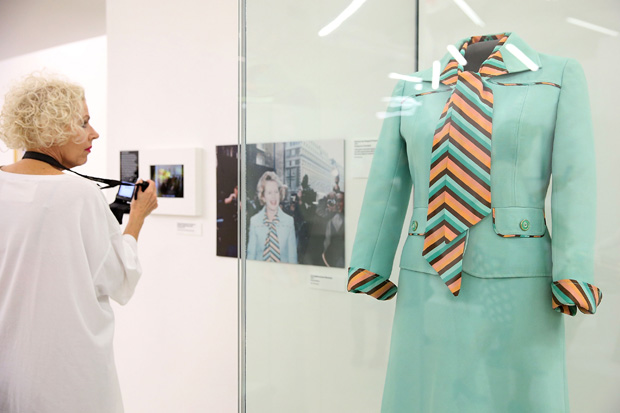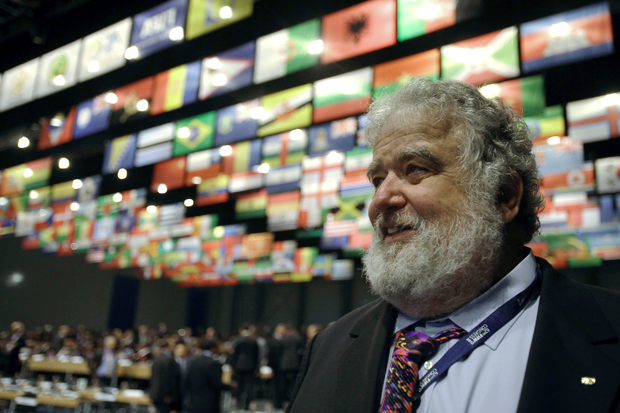When I arrived at Cambridge in 1975, a nervous freshman, I remember walking with a friend past Newnham and being introduced to a third-year undergraduate. She was attractive, witty, confident, well-connected, at home in the world of the ‘glittering prizes’ (the irritating phrase which gave its name to Frederick Raphael’s novel of that time). I envied her poise. Her name was Diane Abbott. Later, making many sacrifices for her career, she changed her accent, became ‘working-class’, and had a relationship with Jeremy Corbyn, but for me she will always be Diane, the posh goddess. So perhaps I am biased, but hearing her on the Today programme on Tuesday attacking George Osborne’s ‘charter’ which will force all future governments to maintain a budget surplus, I reckoned she was right. What is this mania for making laws about what should be matters of policy? We are committed by law, for example, to make international development spending correspond with a particular percentage of GDP. Now Mr Osborne wants to make it illegal to run a deficit under certain conditions. No government should be bound in this way. As so often, the Chancellor is just playing political games to embarrass his opponents and, thanks to a lazy and sycophantic media, succeeding.
My search (see previous Notes) for whether or not Sir Keith Joseph could possibly, in 1964, have told the future Professor Sir Geoff Palmer to go home to Trinidad and grow bananas, is encountering almost hysterical resistance. When the Centre for Policy Studies, the think-tank which Joseph founded, took up his cause and arranged to speak to Sir Geoff on the telephone, he had an ‘Equality officer’ present. In a subsequent email to the CPS, Sir Geoff heads his letter ‘Palmer vs Moore and Sir Keith Joseph’ as if this were a legal case, and describes what I am saying as ‘untenable evidence against me’. A friend also drew my attention to a new passage in the Wikipedia entry on Sir Geoff (now re-edited). It said, among other things, that my comments about Sir Geoff were ‘prejudicial’, my ‘evidence’ was ‘false and irrelevant’, and spoke of ‘the charge of racism against Moore’. My comments were ‘the kind of injustice that Black and Ethnic Minority People (BME) have to face in this society’. We have traced the author of this Wiki edit. He is called ‘BS Edinburgh’ and he has edited other Wiki entries about Sir Geoff and one about an Edinburgh businessman called Foysol Choudhury. There are nice pictures on Facebook of Mr Choudhury smiling for the cameras with Sir Geoff. My message to Sir Geoff and all his friends is that I am not doubting his honesty. I am no more launching a racist attack on him than he is on another BME person (the Jewish Keith Joseph). My position is simple: it is extraordinarily unlikely that the Cabinet minister in charge of Housing and Local Government in 1964 (or a shadow spokesman from October of that year) could have been on a panel selecting a potential agriculture MSc student for Nottingham University, for several reasons already stated in previous Notes. It is also inconceivable to Keith Joseph’s friends that he would ever have spoken in the unpleasant way that Sir Geoff recalls. So my guess is that Sir Geoff accurately remembers what was said — the words must have struck him painfully — but is mistaken about who spoke them. In this age of Wiki-accusation, it is important that the memory of Keith Joseph is not unwittingly libelled. Sir Geoff should calm down and see if we can find out who actually was on that panel, or at least accept that Joseph could not have been.
Two recent deaths which prove that, in our Sussex parish, all human life is here. The first is of the Dowager Lady Killearn, aged 105. She was a half-Italian beauty, who was 30 years younger and about 14 inches shorter than her husband, Miles Lampson (later Lord Killearn), who effectively ran Egypt before and during the second world war. She appeared on the front of Time magazine in 1942, pictured with Winston Churchill and her baby son in the Cairo embassy garden, shortly before Alamein, to symbolise hope. When we moved into the village in 1996, I told Denis Thatcher, who knew the place, that she was our neighbour. ‘Jackie Killearn still alive!’ he exclaimed, ‘She must be as old as the bloody Virgin Mary.’ She had a rather different lifestyle from Our Lady, being accused by her disgruntled butler of sharing a bed with a married man in her late nineties. She quite often rang me, ‘Why don’t you ask me to your madly gay parties?’ she would complain. She was infuriating to talk to about the past, because she preferred to avoid it, and hurl herself into the present. What secrets she must have taken to her grave.
The other death is of Brian Morris, aged 75. He was a type that has almost vanished, an out-and-out countryman, who lived all his life in the house where he was born. During the war, Brian’s father once decided, to his wife’s consternation, not to take his weekly Sunday-night bath in a tub in the kitchen because he was so tired by hay-making. A spent shell smashed through the ceiling and hit where the tub always stood, so his was a life-saving decision. Brian, who never married or travelled, knew everything about the village, including where every drain was. Above all, being a gardener, he knew what grew. As everyone (including us) who had ever employed him agreed, he exercised a curious power over his titular bosses, saying ‘We might do x’, when he meant ‘I shall do x’. When we arrived, Brian was paid £3 an hour. I said to him that this was too little. He glared angrily at me: ‘I decide what I charge,’ he said: his self-imposed poverty made him mightier still. Brian lived near Bateman’s, Rudyard Kipling’s house. At the funeral, ‘The Glory of the Garden’ was the natural choice. The lines fitted: ‘Our England is a garden, and such gardens are not made/ By singing: — “Oh, how beautiful!” and sitting in the shade,/ While better men than we go out and start their working lives/ At grubbing weeds from gravel-paths with broken dinner-knives…’.
Got something to add? Join the discussion and comment below.
Get 10 issues for just $10
Subscribe to The Spectator Australia today for the next 10 magazine issues, plus full online access, for just $10.
You might disagree with half of it, but you’ll enjoy reading all of it. Try your first month for free, then just $2 a week for the remainder of your first year.














Comments
Don't miss out
Join the conversation with other Spectator Australia readers. Subscribe to leave a comment.
SUBSCRIBEAlready a subscriber? Log in